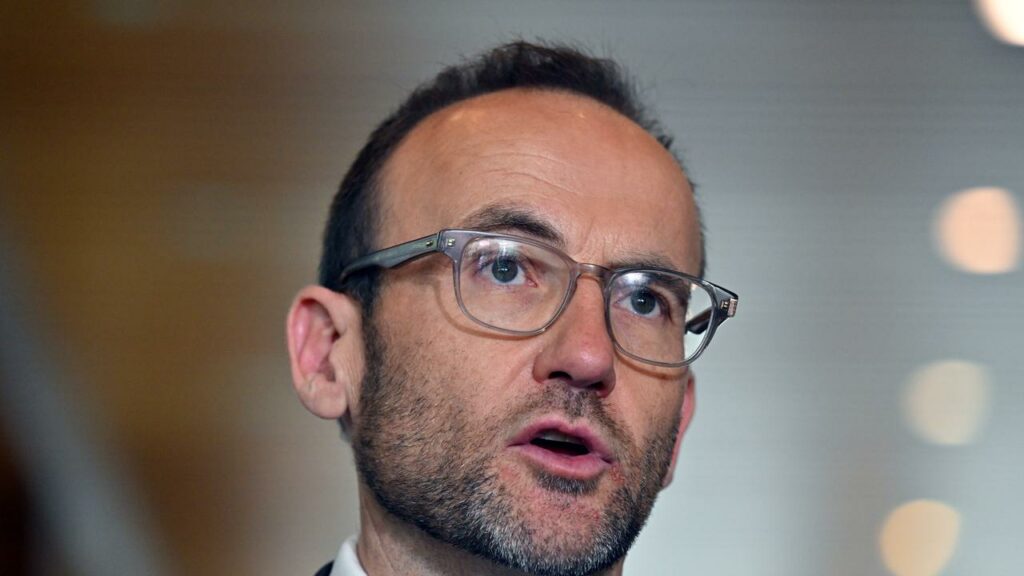Greens strike deal with Labor on climate safeguard plan
Paul Osborne and Andrew Brown |

The Greens will support Labor’s key climate policy, the safeguard mechanism bill, through parliament after striking a deal on coal and gas projects.
But Greens leader Adam Bandt said the fight against new coal and gas projects continues.
The government aims to sail the mechanism through parliament this week so the reforms can be in place by July.
It passed the lower house on Monday after the government did not support proposed amendments from independent crossbenchers.
Climate Change Minister Chris Bowen said many of their concerns would be addressed in amendments to be considered by the Senate.
Yet despite the minister’s assurances, lower house crossbenchers were not pleased their amendments would not be considered.
Victorian independent Zoe Daniel said it was neither respectful nor effective of the minister to ask the lower house to trust their concerns would be addressed.
“A pat on the head and a ‘don’t worry about it’ is not good enough for either this cross bench or our communities,” she said.
Labor needs the support of the Greens plus two other votes to get the bill through the upper house.
Under a deal struck with the Greens the government will put a ceiling on gross greenhouse gas emissions, which won’t be able to exceed current pollution levels of 140 million tonnes a year, and there will be a decreasing cap over time.
The bill will include a “pollution trigger” that will require the climate change minister to test a new or expanded project’s impact on the hard cap and net carbon budgets.
If the assessment finds that the project would contribute to exceeding the cap or budget, the minister must consult and recalibrate the rules or impose conditions on new entrants.
As well, all new gas fields for export will need to be carbon neutral from day one.
Prime Minister Anthony Albanese said the laws would allow for greater action on climate change, and for the country to become a “superpower” for renewable energy.
“We can’t afford to continue to engage in conflict in this place in order to try to get the perfect outcome,” he told reporters in Canberra.
“We have a responsibility … to achieve real outcomes to protect our manufacturers, to grow our economy, while we’re dealing with emissions reduction.”
Mr Bandt said despite not gaining a total ban on new coal and gas projects, it would be more difficult for them to open in the future.
“Now there is going to be a fight for every new project the government wants to open … if any new coal or gas project opens from here on, it will be squarely on Labor’s shoulders,” he said.
Opposition climate change spokesman Ted O’Brien described it as a “carbon tax on prosperity”.
“It’s one thing to decarbonise the Australian economy, but you don’t want to decapitate it on the way, and that’s precisely what this dirty deal with the Greens is all about,” he said.
“To put a hard cap on growth of the Australian economy sets Australia up for failure.”
Mr Bowen said the mechanism would allow for emissions reduction targets to be met.
“We would not have achieved our targets without passing this bill and without implementing this reform,” he told parliament.
“These 205 million tonnes of emissions that will be removed … (are) equivalent to two-thirds of the cars on Australia’s roads.”
Environmental groups cautiously welcomed the deal but said it must be viewed as a “starting point” for a scheme that will require regular review.
The Australian Pipelines and Gas Association said the certainty would help reach emission reduction targets faster, but questions remained over whether the new restrictions on gas supply would increase costs for households and businesses.
AAP